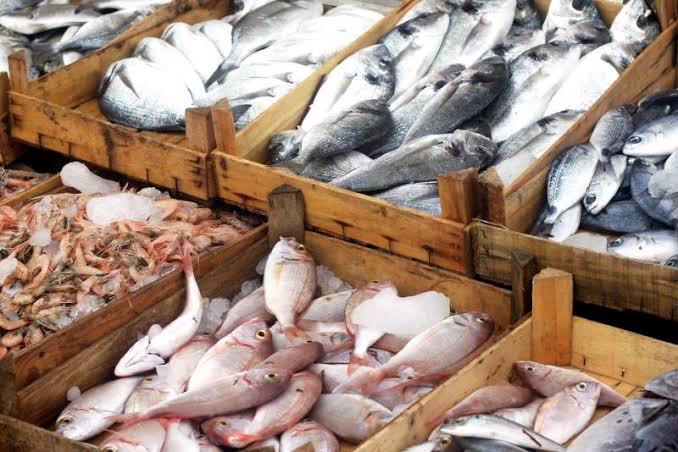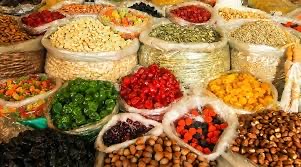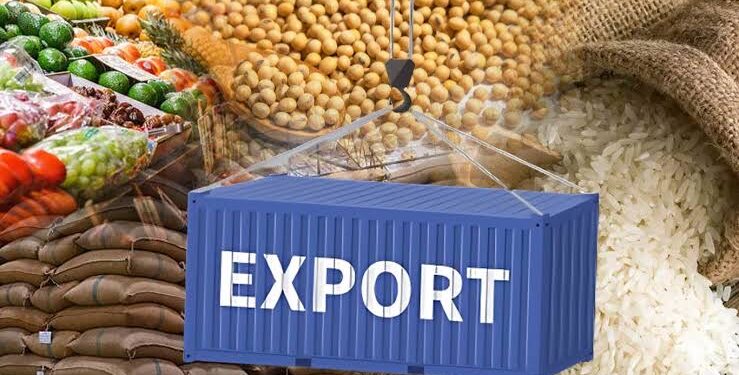Frustrated about their products being rejected in Europe and other countries, Nigerian exporters are now adopting the country of origin and labels of neighboring West African countries such as Ghana, Benin Republic, and Togo when shipping goods abroad.
With this decision, they sought to curb the growing losses incurred over the years due to misunderstandings and integrity issues related to agricultural produce imported from the country.
Shippers who spoke to Journalists said despite the establishment of Export Processing Terminals (EPTs) by the Federal Government to facilitate the export of agricultural produce at Nigerian ports, Nigerian exporters still prefer to get their products via the ports of Tema (Ghana), Cotonou (Benin Republic) and Lomé (Togo).
Journalists learned that most of the agricultural produce sent to Europe via Ghana, especially yams, are of Nigerian origin. However, it is these very products that are transported through Nigerian ports that are often rejected abroad as they are viewed negatively by potential buyers based on labeling and perceptions of Nigerian exports.

This confirms why Nigerian exporters are adopting Ghana, Benin Republic, and Togo labels on goods they send abroad. Sources confirmed to Journalists that such goods, including agricultural products and foodstuffs, are rejected by destination countries when marked as Nigerian. This is despite sources disclosing that about 76 percent of Nigerian products are rejected by the European Union (EU).
Speaking at a recent forum on reasons for product rejection, the Director-General of the National Agency for Food and Drug Administration (NAFDAC), Prof. Mojisola Adeyeye, said some Nigerian exporters are bypassing the agency.
According to her, exporters are boycotting regulatory procedures and none of the food products rejected abroad are inspected by NAFDAC or the Nigerian Agricultural Quarantine Service (NAQS).
Adeyeye said, “Most of the exporters don’t go through NAFDAC and after taking a shortcut at the other end, they get to the other side there is no shortcut, and the product will be destroyed”.
“We have to enlighten the public more about the role of NAFDAC in exportation because we have to test whether there is pesticide residues and moles in the food. We have to do all sorts of testing because if we don’t when it gets to the other side it will be rejected and destroyed”.
Bassey Udom, an exporter, said there are many shortages related to export products that the government needs to address urgently. It is serious about the non-oil economy.
“We are aware of EPT created by the government strictly for export but that has not changed the wrong perception of the foreign buyers about the export produce coming from Nigeria. This is the reason we are going through neighboring countries where they have wide acceptance of their export produce in Europe.
“This why some of these government agencies are saying exporters don’t come to them for documentation or for scrutiny and the rest. It is not 100 percent true. Sometimes, these produce face logistic issues before arriving the port for shipping. Touts and police will stop our trucks and collect money on the highways and among other issues. This usually causes delays getting our products to the destination on time.
“Once we are able to scale through all these hurdles, we take our produce to where we know that it will not be rejected and make our money. The joy of every businessman is to make good money,” he said.
He added that the government still has a lot of work to do to address these issues and the rejection and negative labeling of exports of Nigerian products by European countries.

The Chief Executive Officer of the Center for the Promotion of Private Enterprise (CPPE) Dr. Muda Yusuf said in an interview with Journalists, that Nigeria needs to build confidence in its agricultural products among international buyers and regulators.
He explained that due to quality issues in some Nigerian food products, exporters are now seeking country of origin labels from other countries such as Ghana to meet foreign standards.
This situation arose due to concerns in the past over the quality and packaging of Nigerian products such as beans.
Dr. Yusuf stressed that there is nothing fundamentally wrong with the physical quality of products such as yams.
However, the problem lies in packaging and documentation, which can lead to negative perceptions of Nigerian products. He noted that Nigerian exports are treated disproportionately, resulting in more stringent inspections compared to products from other countries.
To overcome these challenges, Dr. Yusuf stressed the importance of improving packaging, meeting international standards, and streamlining export processes. He noted that the logistics of transporting perishables from farms to ports are cumbersome and often result in delays, which can affect the quality of the product.
He argued that streamlining these processes will not only boost the confidence of foreign buyers but also reduce additional burdens on Nigerian exporters, such as sending products through Ghana.
Journalists further reported that one of the biggest obstacles facing Nigerian exporters is finding buyers for their products. The challenge is exacerbated by the negative perception of Nigerian exports in foreign markets.
































